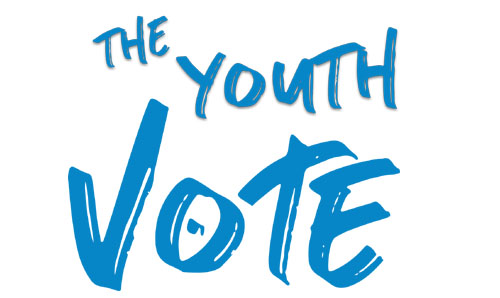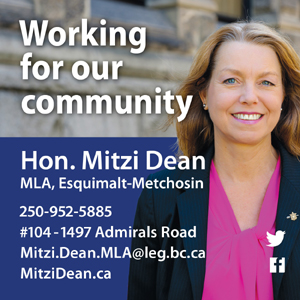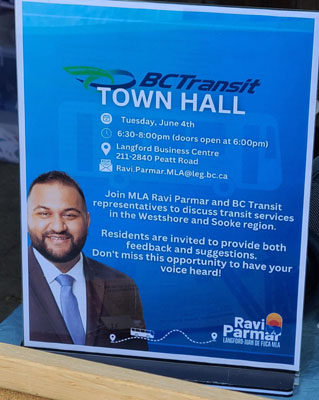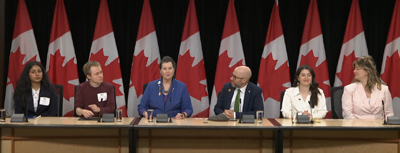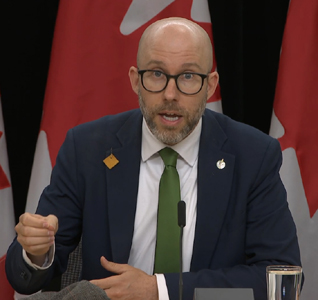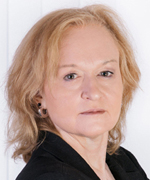Sunday June 2, 2024 | LANGFORD, BC [Updated June 3, 2024]
Political analysis by Mary P Brooke | Island Social Trends
BC Residents who are age 18 and older can vote in BC.
Voters need to have been living in BC for at least six months, which for the upcoming October 19, 2024 provincial election that means that deadline has already passed (see Elections BC).
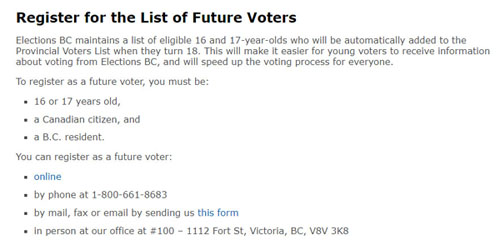
Elections BC maintains a list of eligible 16 and 17-year-olds who will be automatically added to the Provincial Voters List when they turn 18.
What do youth care about?
What do youth voters care about? And what is a ‘young voter’?
In the eyes of political folks that could be age 18 to 25, or depending on the issue (such as housing) it could include up to age 30 or 35 years. Some even look to the pre-voter age of age 16 and 17, getting them ready to vote with ideas already in mind.
Youth clearly care about the environment and climate change, about affordability in an inflation-pressured economy, and the cost of a post-secondary education.
While they may not pay the family bills right now, they are subject to cost-of-living impacts on their parents or family. Recent polls across Canada have shown that many youth consider home ownership out of reach for a long time.
While youth may be healthy now, they are no longer raised in a society where there is easy access to a family doctor. This is going to lead to health challenges for individuals and families over time as well as additional costs for the health-care system.
This is nothing new. As penned in 2018 by a local 21-year-old, Jennifer Brooke, in an editorial about the youth vote published in this publication:
“We the youth want affordable housing. We want affordable food and schooling. We want an end to homelessness. We want accessible healthcare to accommodate the astronomical rates of mental illness. We want an increased minimum wage, and access to higher paying jobs. We want better sex education in schools that is LGBT+ inclusive and heavily discusses consent. We want spaces to learn the languages and heritages our families never taught us so we’d fit in. We want clean air and water by the time we’re your age.”
She continued: “Politicians: we’re watching, we’re smarter than you think, and we know what we need.”
Young west shore politician:
Here in the west shore of south Vancouver Island, MLA Ravi Parmar has himself been an example of a politician who was moved up through the political party ranks from a very young age. Nearly right out of high school he was already on the local SD62 school board, and soon their Chair.
For years the local NDP momentum was ‘all about Ravi’, and in June 2023 he won the provincial by-election in Langford-Juan de Fuca with a solid team of NDP support behind him fueled by the exit wave of former MLA for the region, John Horgan (who was MLA in the region from 2005 and then Premier 2017-2022, having resigned from being MLA in early 2023 to complete his transition plan).
Town hall aimed at youth:
Next week, Parmar will be hosting a town hall — the sort of event where one topic or theme is discussed with some sense of political leadership, and may include experts from relevant fields.
The June 4 town hall on transit services in the west shore and Sooke region is being co-led by BC Transit and co-hosted by MLA Mitzi Dean (Esquimalt-Metchosin), and the topic is achieving free transit for youth. Being held on a weekday evening in an office building may not be conducive to youth participation.
The event poster says “residents are invited to provide feedback and suggestions”. The poster for the event shows Parmar in a business suit and tie, with no youth pictured in the promo.
Parmar has for many years been an active advocate for free bus ridership for kids to go to school. It goes hand in hand with minimizing the transportation challenges of families to get their children and teens to school while also rushing off to work. The topic will support his advocacy for youth and the west shore if he returns to the BC Legislative Assembly after the October 19 election.
For years, active transportation (walk, bike, roll) has been promoted for youth getting to and from school.
What do youth know?
Young people are highly attuned to their surroundings. They have much to offer in the way of insight and feedback They are still in or fresh out of the current education system which has ideally kept them up to date on current issues and has enhanced their critical thinking skills.
However, the human brain is not fully formed until around age 25 in terms of calculating consequence. This has been proven by modern science. Science or not, it’s obvious that youth are impressionable.
To build and maintain a strong youth vote is a good political strategy for any political party. The NDP in BC have, in particular, done a notably good job of building that base.
Raising the federal voting age:
The topic of lowering the voting age to 16 has again been raised in Canada recently. “Nothing bad happens when you lower the federal voting age to 16, it’s all good,” said a Canadian Senator Sandra MacPhedren in her summit panel introduction; her bill is still active in the Senate.
Involving children in “their democratic right to vote” was a stated at the panel by Green Party MP Mike Morris.
“Young people across the country are going to ensure that parliamentarians continue to hear from them,” said Morris about the youth right to vote. He articulated that voter turnout increases and that there would be more engagement in our democracy.
===== RELATED:
- National Summit on Vote 16 – Video at CPAC.ca (May 29, 2024)
- Greens hear about challenges for youth at UVic (March 29, 2024)
- Singh: hopes older Canadians will lend votes to youth (April 9, 2021)
- Children First Canada – report based on with input from 180 children and youth (August 2020)
- Adam Olsen named BC Green Party interim leader; anyone age 16+ can vote for new leader (December 21, 2019)
- Editorial: Youth-vote authenticity in the 2018 municipal election? (October 21, 2018)
- NEWS SECTIONS: EDITORIALS | BC ELECTION 2024
===== ABOUT THE WRITER:
Island Social Trends Editor Mary P Brooke is the mother of four now-grown children.
Mary P Brooke has steered four publications through a socioeconomic lens, always with a political analysis: MapleLine Magazine (2008-2010), Sooke Voice News (2011-2013), West Shore Voice News (2014-2020), and now Island Social Trends (2020 to present).
Ms Brooke ran for school trustee in 2022. In 2023, she was nominated for a Jack Webster Award for contributing to her local community through journalism.
In 2024, Ms Brooke, B.Sc. has launched Urban Food Resilience Initiatives Society to help guide food supply resilience in the South Vancouver Island region.


